Skills gap question for Swansea Tidal lagoon project
- Published
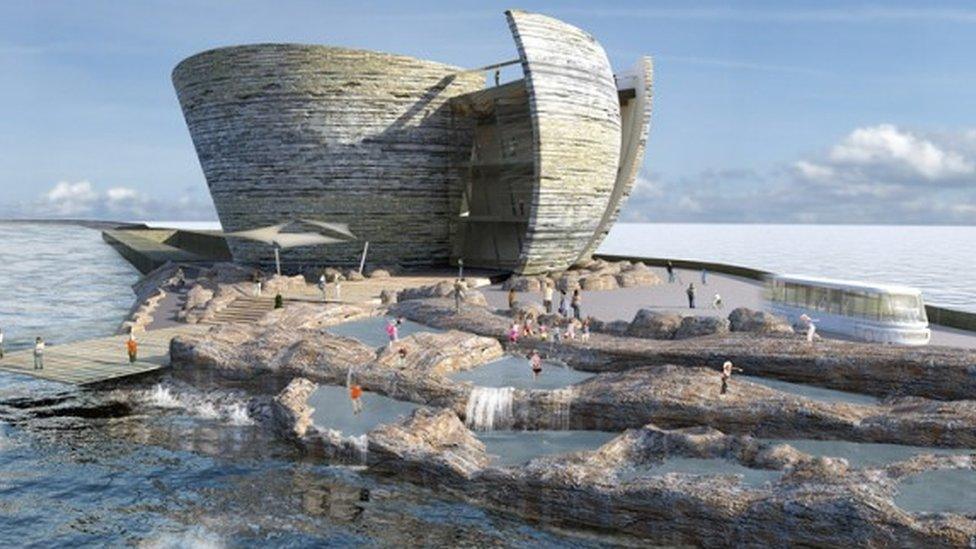
Artist's impression of the lagoon
Wales needs to invest in more skills if it is to take full economic advantage of the planned £1.3bn Swansea Bay Tidal Lagoon, says an independent study.
Researchers estimate Wales only has has around half of the manufacturing capability needed.
There is also concern it faces competition from other big projects like HS2 and Hinkley Point C for construction workers.
A UK Government review is currently being held.
It is looking at the project's feasibility and level of subsidy required and is expected to report in the autumn.
Plans for the huge tidal energy project, with 16 turbines providing power for 120,000 homes for 120 years, were put forward two years ago.
It would involve a five-mile (9.5km) causeway being built out to sea.
This latest report has been put together by Miller Research, Whole Life Consultants and the Construction Industry Training Board and was commissioned by the Welsh Government.
Altogether it forecasts that the lagoon could bring 2,200 jobs in the five years it would take it to be built.
Nick Miller of Miller Research said £10m in investment could make a a difference to jobs going to Welsh companies
Of these, 1,200 would be in manufacturing but at present, Wales is equipped to provide only 54% of what is needed to make and assemble the lagoon's main components.
However, the report says with sufficient investment to fill the gaps, Wales could, in theory, provide 92% of what is needed.
Another 1,000 construction jobs are forecast , externalas being needed involving 28 different types of work.
But there are concerns "occupational pinch-points" in terms of numbers and skills are "a real risk" in the medium to long term because of competition from other major infrastructure projects.
These include HS2 rail, nuclear power projects Hinkley Point C and Wylfa Newydd and possibly the M4 relief road.
There are also demands for new housing expected in areas including Cardiff and Flintshire.
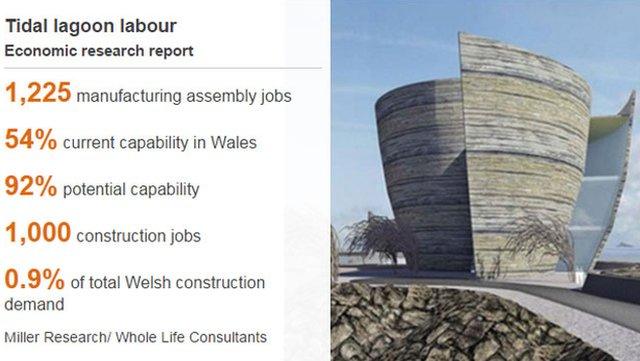
Potential skills gaps for the project include plant operators, specialist building repairers, labourers, carpenters, project managers and those with specialist marine skills.
The current estimate is that the construction sector in Wales will need an additional 5,440 workers each year over the next five years to meet expected demand.
The report says this represents 4.7% of employment in Wales, "well above" the 1.7% in the UK as a whole.
It also says the sector has struggled to attract younger people.
It was "critical" there was collaboration and planning over skills which needs to be led by Welsh Government.
Working with colleges and training providers and highlighting needs was "essential to address the risk of skills gaps and shortages that will fuel a rise in project costs and over-runs", it said.
Watch Tidal Lagoon Power's video of how the turbines would work
The report adds: "Projects tend to always be built but if the Welsh Government and its stakeholders want to mitigate against the cost of labour rising or over utilisation of imported labour it is important to consider the recommendations," said the report.
On the manufacturing side,, external the study looks in detail at the turbine and lagoon components needed and how some of it is expected to come from China as well as Wales and the UK.
But there are no Welsh companies currently capable of making large steel castings, such as runner blades and hubs, which are expected to provide work for nearly 200 people for up to 18 months.
There are also no firms in Wales to make forged steel shafts with the potential for 130 jobs.
Just under half of firms interested in supplying the lagoon are in Wales - 35 in the Swansea area.
While investment in the right machinery is "essential", potential workforce gaps include skilled metal fabricators, where there is an "acute shortage" and metal forging.
It says to meet the Tidal Lagoon plans "more people with the right skills are needed in Wales".
"To meet future demand that could arise from not only the Swansea Bay lagoon, but also future lagoons around the Welsh coast, there is a need to start training individuals now, so that they are suitably qualified and experienced to be able to capitalise on the opportunities," it said.
The Welsh Government is expected to respond later.
Tidal Lagoon Power said it was working in partnership with Welsh industry, education and government "to ensure that Wales is ready to squeeze every last drop of opportunity from this for the UK."
- Published21 July 2016
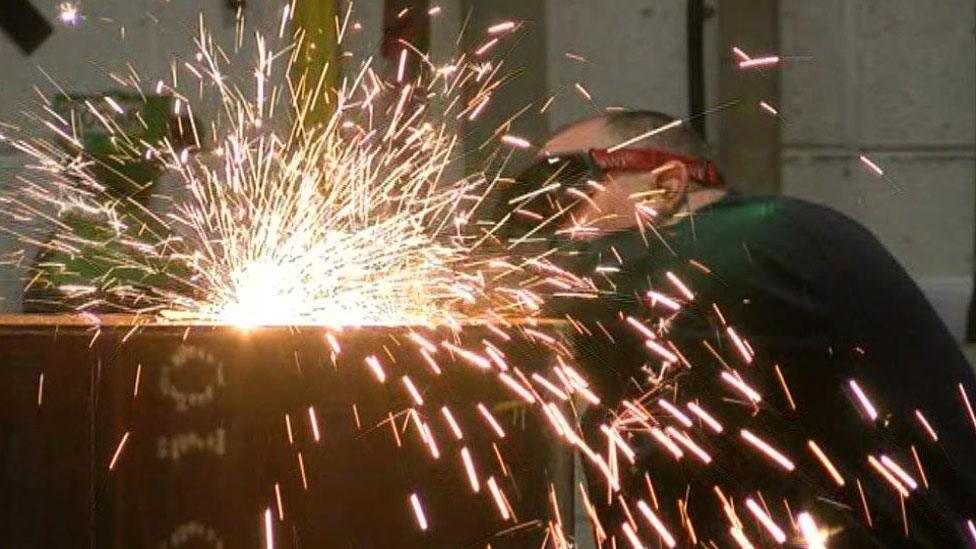
- Published10 February 2016
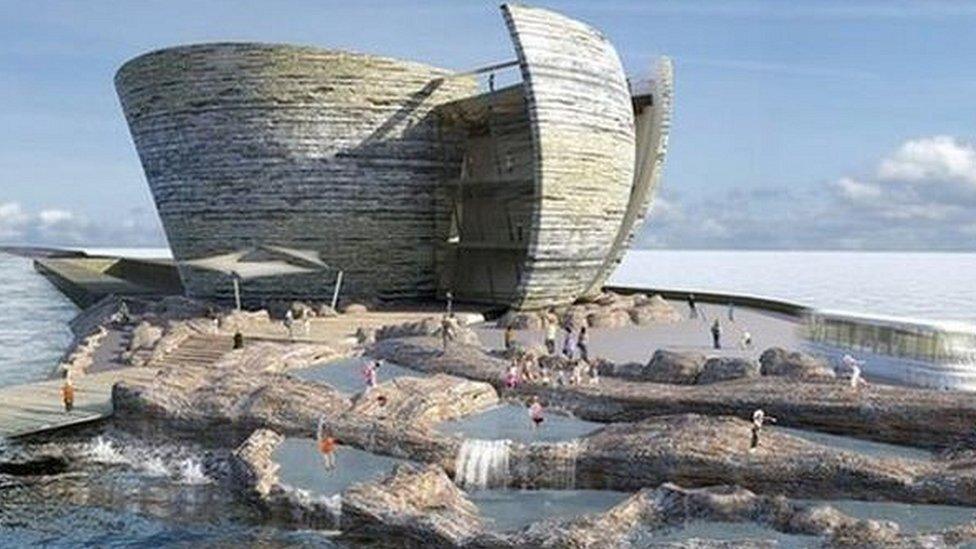
- Published7 February 2014
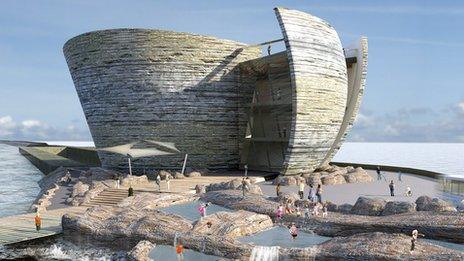
- Published6 February 2016
